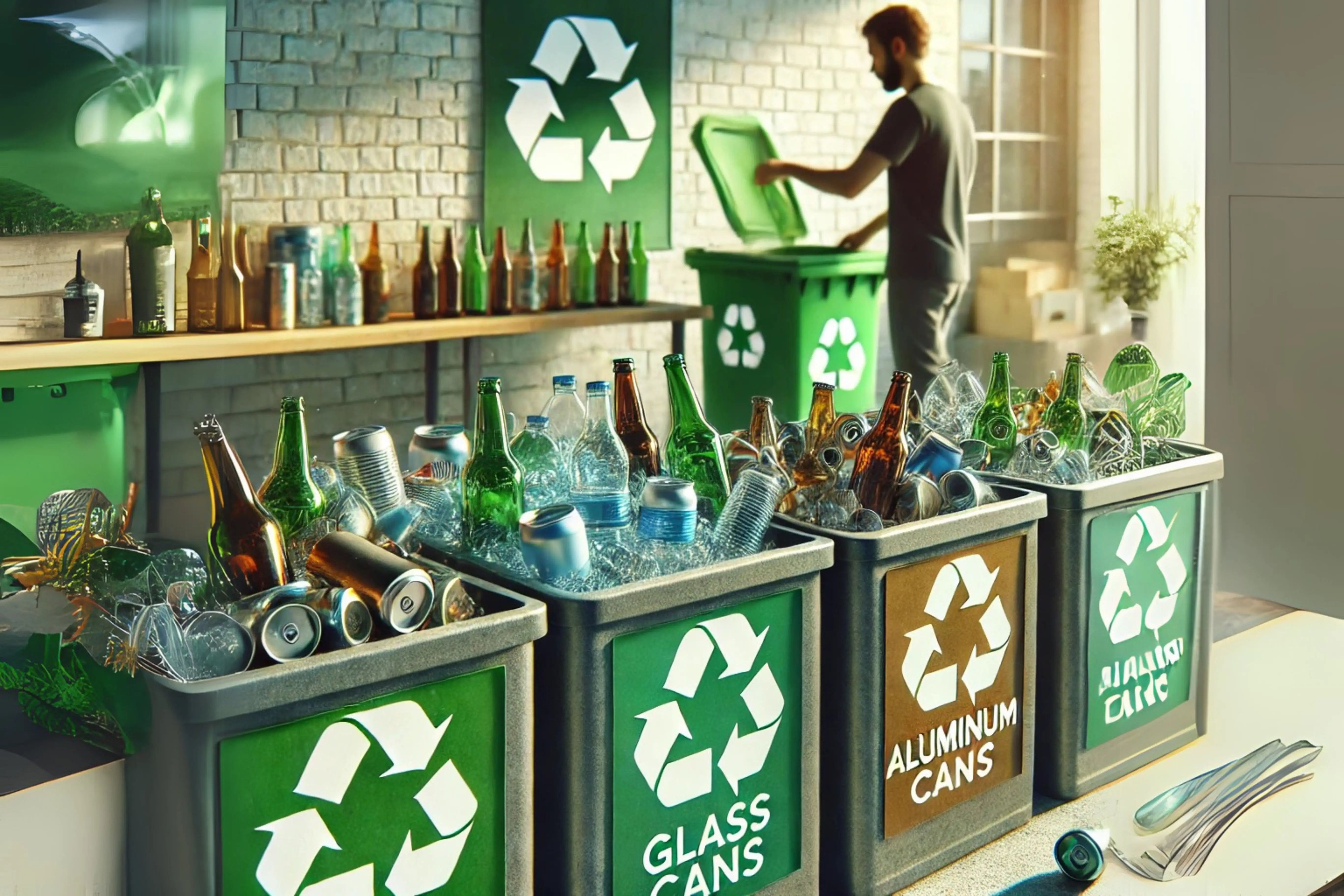Bisphenol A (BPA) is a chemical mostly utilized in the production of plastic materials, including plastic bottles, food containers, and canned foods. While it has been widely used for decades, scientific studies have raised concerns regarding the potential health risks associated with BPA exposure. BPA-containing plastics can leach harmful chemicals into food and beverages, leading to human exposure. To mitigate these concerns, BPA-free packaging has emerged as a safer alternative, providing numerous health benefits while reducing environmental exposures. All products from The Bottle Depot are BPA and Lead free, ensuring maximum safety for consumers.
What is BPA?
BPA is a synthetic compound used in manufacturing plastic products, including plastic baby bottles, plastic cups, and compact discs. It is also present in the linings of aluminum cans and canned formula packaging. BPA-containing plastics are commonly found in food packaging, where they provide durability and resistance to heat. However, the presence of bisphenol A in these products poses potential health effects due to its ability to leach into consumables, especially under high temperatures or when exposed to direct contact with acidic or fatty foods.
Health Risks Associated with BPA Exposure
Endocrine Disruptors and Hormonal Imbalance
BPA is classified as one of the endocrine disruptors that can mimic estrogen in the human body. This can interfere with body systems, leading to adverse health effects such as reproductive issues, metabolic disorders, and developmental effects in children.
Potential Health Effects on Pregnant Women and Children
Exposure to bisphenol A has been linked to developmental effects in fetuses and infants. Studies on adult rhesus monkeys and other animal models suggest that even low doses of bisphenol can impact brain development, behavior, and body weight regulation in young individuals.
Links to Chronic Diseases
Additional studies have indicated potential risks of BPA exposure, including links to diabetes, obesity, cardiovascular diseases, and hormone-related cancers. The ongoing safety review by regulatory agencies aims to determine the exact levels at which BPA poses a threat to human health.
Neurological and Behavioral Concerns
Research has explored the potential effects of BPA on cognitive function and behavior. Some scientific studies suggest that BPA may contribute to anxiety, hyperactivity, and learning disabilities, particularly in children.
Why BPA-Free Packaging Matters
Switching to BPA-free packaging eliminates exposure to toxic chemicals, reducing the likelihood of harmful effects on human health. BPA-free materials, such as BPA-free plastic bottles and BPA-free food storage containers, provide safer alternatives for consumers looking to minimize dietary exposures.
Compliance with Safety Regulations
Regulatory bodies have implemented guidelines to limit BPA exposure. Many manufacturers now use BPA-free polymers to meet these standards, ensuring that BPA-free products align with current levels of safety compliance.
BPA-Free Benefits for Consumer Health
Using BPA-free water bottles, BPA-free plastic containers, and BPA-free food storage containers helps protect consumers from potential health risks. BPA-free options provide peace of mind, ensuring that food and beverages remain free from detectable levels of toxic chemicals.
BPA-Free Packaging Alternatives
Glass Containers
Glass is a non-toxic, reusable, and highly durable alternative to BPA-containing plastics. BPA-free containers made from glass are widely used for food storage, bottled water, and baby bottles.
Stainless Steel and Aluminum Alternatives
BPA-free bottles made from stainless steel provide a safe, eco-friendly option for hydration. Many aluminum cans now feature BPA-free linings to eliminate exposure to bisphenol.
BPA-Free Plastic Options
Manufacturers have developed BPA-free plastic alternatives, such as Tritan™ and polyethylene (PE), which do not leach harmful chemicals into food packaging.
Paper-Based and Plant-Based Packaging
As part of the move toward sustainable packaging, viable alternatives like paper-based cartons and plant-derived bioplastics are gaining popularity for their environmental benefits.
How to Identify BPA-Free Products
Consumers can look for a BPA-free label on packaging to ensure safety. Additionally, checking the recycling code on plastic containers can help determine BPA content. Plastic products labeled with recycling codes #3 and #7 may contain BPA unless explicitly marked as BPA-free.
The Environmental Impact of BPA-Free Packaging
BPA-containing plastics contribute significantly to environmental pollution. BPA-free materials promote sustainability by reducing landfill waste and supporting recycling efforts. The distribution of bisphenol A in water systems and soil highlights the need for safer alternatives.
How Businesses Can Transition to BPA-Free Packaging
- Choosing BPA-Free Materials: Companies can source BPA-free polymers and alternative materials to manufacture safer packaging.
- Investing in BPA-Free Containers: Businesses can stock BPA-free food storage containers and BPA-free plastic bottles to meet consumer demand.
- Educating Consumers: Brands that highlight the determination of bisphenol-free options gain trust and loyalty.
- Case Studies: Companies that have successfully transitioned to BPA-free options can serve as models for others looking to make the switch.
The Bottle Depot: Your Source for BPA-Free Products
If you are looking for BPA-free products, The Bottle Depot has you covered. We provide a wide range of BPA-free and Lead-free packaging solutions, including BPA-free plastic closures, BPA-free glass bottles, and jars. Our commitment to safety ensures that every product we offer meets the highest standards for health and environmental responsibility. Shop with safety and confidence knowing that all of our products are free from harmful chemicals, which makes them the perfect choice for businesses and consumers.
Conclusion
The shift toward BPA-free packaging is essential for reducing human health effects linked to BPA exposure. By choosing BPA-free products, consumers can avoid harmful chemicals and potential health risks associated with toxic effects. As scientific studies continue to evaluate the safety of plastic materials, BPA-free benefits remain clear: safer food packaging, reduced environmental impact, and improved human health outcomes. Investing in BPA-free options is a crucial step toward a healthier future for individuals and the planet. The Bottle Depot proudly offers BPA-free and Lead-free products as we ensure the highest standards of safety and quality for our customers.




